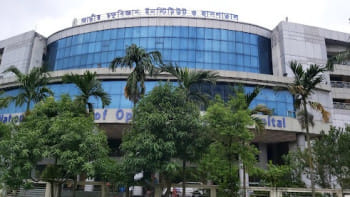India-Bangladesh LBA: The Cake with a Bite
SOON the Government of India would table the 119th Constitutional Amendment Bill to bring the revised India Bangladesh Land Boundary Agreement (LBA) into force. The modified bill, unlike the December 2013 bill, leaves out Assam from being a party to it.
This reminds me of two things. First, how domestic politics influence the foreign policy of a country especially in its neighbourhood. Both the 2013 and 2015 bills have bearing on Indian domestic regional politics. When the 2013 bill was to be tabled in the parliament, the Bharatiya Janta Party (BJP), Trinamool Congress (TMC) and Asom Gana Parishad (AGP) had opposed it to the extent of contesting the Parliament's jurisdiction to alter the territory of India by an amendment to the Constitution. The regime changed and the bill rested in peace. The 2015 bill would have a smooth sail in the Lok Sabha because there will be more than enough of the required two-third support, as TMC has reportedly agreed to stand by with the government. The reason behind leaving Assam out is probably the pressure of RSS and the state election which is due next year. The Chief Minister of Assam, Tarun Gagoi, has criticised the move and urged the Central Government for inclusion of the state in the bill, which might enable it to gain seven hundred acres of land in the swapping.
Second, I am reminded of what Partha Ghosh, an expert on South Asia, calls Bangladesh-India relations: an enigma. Indian officials said that their counterparts had been informed about the latest developments; however, the next day it was reported that Bangladeshi officials did not receive any formal communication. One fails to understand what encouraged the new government to bring the bill so soon after opposing it, and what prompted the TMC to agree to support it. Now where is the Teesta River issue? Does it not hold any relevance for West Bengal as it did in 2011 when Mamata Banerjee refused to accompany Manmohan Singh to Dhaka on the ground that she could not compromise with the interest of her state?
The LBA coming into force would enable the border management to be more efficient. It may also help curb the cattle smuggling, arms trafficking and other trans-border crimes especially in the enclaves and un-demarcated border areas. It would also ease the high density deployment of about 11 Battalions of Border Security Force (BSF) only to safeguard enclaves, which, in addition to being costly, also leads to frequent skirmishes with Bangladesh Border Guards (BGB). However, if the 262 km Assam-Bangladesh border remains unsettled, conflicts between the two countries would continue, albeit to a lesser degree.
It will also give an opportunity to anti-India elements to keep on blowing their trumpet.
Assam is one of the most affected states for alleged illegal migration and, as Mr. Gagoi says, leaving out Assam also taints the concept of cooperative federalism. In fact, Assam was the first state to raise its voice against this issue in the 80s. Even if the government thinks of bringing further amendments to this effect after the Assam election, there is no guarantee that NDA will have similar strength in the parliament considering the volatile nature of TMC and the increasing differences among its allies.
Bangladesh should welcome the amendment even if it happens in one or two attempts and as long as India fulfils its commitment. In any case Bangladesh would gain almost ten thousand acres of land in the swapping of enclaves and lands in adverse possessions.
If the Indian Government is indeed serious about improving relations with its neighbour, the LBA issues should be settled once and for all. It would also be an opportunity to rejuvenate the friendship between the two countries which has seen ups and down in the last few decades. In the present geo-political atmosphere, India cannot afford to be seen as a friend of only one political group of Bangladesh; rather it will have to endeavour to win over the friendship of the nation irrespective of whoever is in power. It would also be in the Indian interest not to have contentious border issues with Bangladesh. Skirmishes on the border with a friendly country like Bangladesh will have perennial problems both for domestic politics on either side as well as for bilateral relations.
The writer is Associate Editor, India Quarterly, Indian Council of World Affairs (ICWA). Email: [email protected]

 For all latest news, follow The Daily Star's Google News channel.
For all latest news, follow The Daily Star's Google News channel. 



Comments